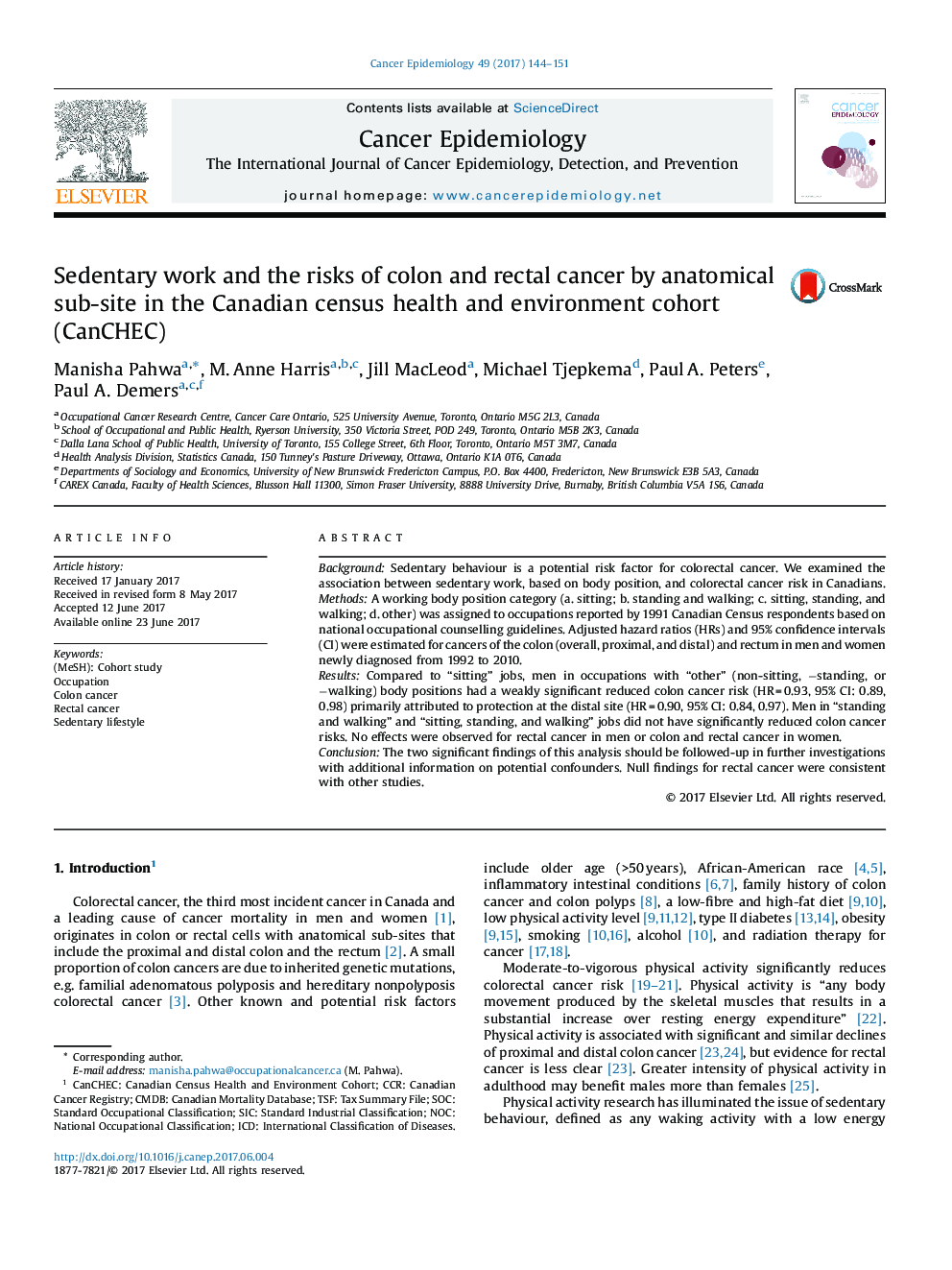| کد مقاله | کد نشریه | سال انتشار | مقاله انگلیسی | نسخه تمام متن |
|---|---|---|---|---|
| 5524785 | 1546526 | 2017 | 8 صفحه PDF | دانلود رایگان |

- Sedentary work and colorectal cancer risks were evaluated in a cohort of 2 million.
- Working body position, used to define sedentariness, was assigned to reported jobs.
- Men in non-sit, âstand, or âwalk jobs had slightly reduced distal colon cancer risk.
- Results were otherwise null; for rectal cancer, this concurred with prior studies.
- Additional data on possible confounders can help clarify specific potential risks.
BackgroundSedentary behaviour is a potential risk factor for colorectal cancer. We examined the association between sedentary work, based on body position, and colorectal cancer risk in Canadians.MethodsA working body position category (a. sitting; b. standing and walking; c. sitting, standing, and walking; d. other) was assigned to occupations reported by 1991 Canadian Census respondents based on national occupational counselling guidelines. Adjusted hazard ratios (HRs) and 95% confidence intervals (CI) were estimated for cancers of the colon (overall, proximal, and distal) and rectum in men and women newly diagnosed from 1992 to 2010.ResultsCompared to “sitting” jobs, men in occupations with “other” (non-sitting, âstanding, or âwalking) body positions had a weakly significant reduced colon cancer risk (HRÂ =Â 0.93, 95% CI: 0.89, 0.98) primarily attributed to protection at the distal site (HRÂ =Â 0.90, 95% CI: 0.84, 0.97). Men in “standing and walking” and “sitting, standing, and walking” jobs did not have significantly reduced colon cancer risks. No effects were observed for rectal cancer in men or colon and rectal cancer in women.ConclusionThe two significant findings of this analysis should be followed-up in further investigations with additional information on potential confounders. Null findings for rectal cancer were consistent with other studies.
Journal: Cancer Epidemiology - Volume 49, August 2017, Pages 144-151